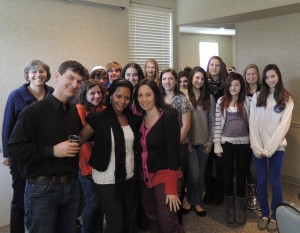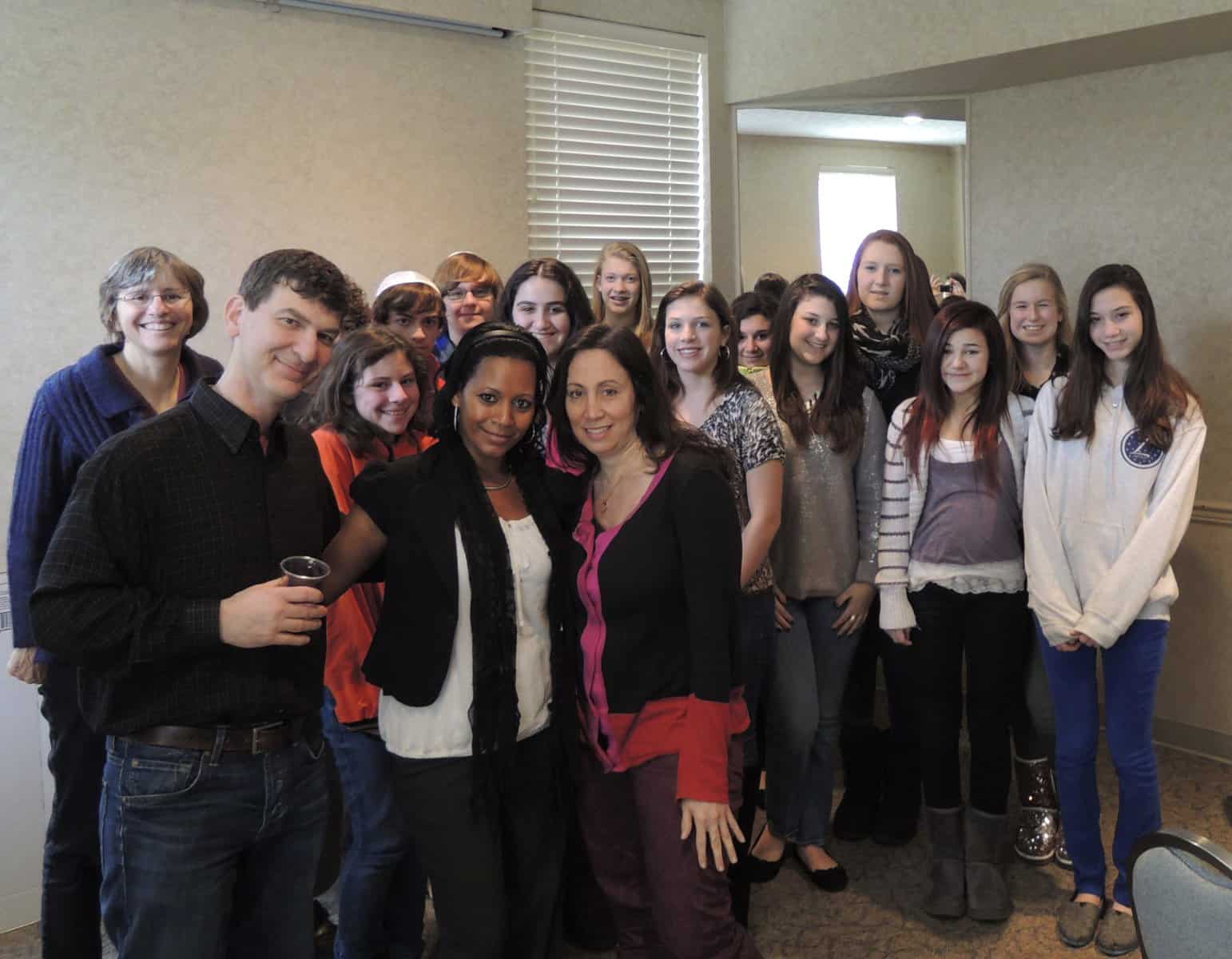
Front Row: Dr. Mark Lipton, Eli Gordon, Maly Gaday Jackson, Carolyn Amacher; Back Row: Kevin Tabakin, Zach Kell, Josh Mitnick, Ben True, Gillian Zwiefler, Maya Lipton, Zoe Vooss, Hannah Foleck, Jaden Baum, Carly Marcus, Gracie White, Meagan Greenzaid, and Olivia Kamer.
The Beth El Religious School’s eighth and ninth graders listened to Ethiopian refugee Maly Jackson tell her remarkable story on Sunday, Feb. 3.
Ethiopian Jews are descended from King Solomon and practice biblical Judaism, which means they do not celebrate Chanukah or Purim. During the mid-1970s and 1980s, Ethiopia became communist and started discriminating against and persecuting its Jews. Jackson says that she grew up unable to tell her non-Jewish friends about her religion. Her Jewish identity was strong at home because of her Zionist grandfather. With her husband serving in the Ethiopian military, Jackson’s mother was determined to give her daughters a better life, so she became part of a plan to leave Ethiopia with a group of about 200 people. One night, around midnight, six-year-old Jackson packed barely more than the clothes on her back and left with her mother and two-year-old sister. She describes it as a modern day Exodus.
The group could only travel at night, for fear of being seen by the military. When dusk fell and their trek began once more, a guide paved the way with a flashlight. Another guide kept the back of the line moving. Not all the travelers had shoes to protect their feet during the rocky trek. Jackson recalls the warm weather during the trip. With their scarce food and water being rationed, many journeyers got sick and died. Jackson’s uncle was among those who buried the dead.
While in the desert, they encountered bandits who took most of their valuables and mementos of home. The leader of the bandits could have sold the group out to the government, but decided not to. Not long after that, the travelers crossed the Sudanese border and resided in a refugee camp for three months. It took three weeks to get from Ethiopia to Sudan. They slept in tents on wooden boards. She remembers getting stung by a scorpion hiding in her clothes and having her face swell up before her uncle found her an antidote. Still, they could not openly practice Judaism, although Jackson’s mother prayed often.
After three months, the group traveled to Khartoum, where they waited even longer until the Israel Defense Forces arrived. Jackson remembers seeing the airplane and thinking, “Wow, that’s a big bird.” They and other Jewish refugees were hurried into the airplane and flown to Israel. As soon as the plane got up in the air, all the refugees started praising God and rejoicing.
In Israel, Jackson recalls the food the refugees were provided with was very different from what they were accustomed. After her family settled in, Jackson worked hard to learn English and support her family. In 1999, she met a soldier in Haifa who would later become her husband. She moved to the U.S. after getting married, and now has two children at Hebrew Academy and Strelitz Early Childhood Center.
Jackson’s story is inspiring because it is indeed a “modern-day Exodus,” a group of refugees crossing the desert, flocking to Israel for safety, going to the Land of Milk and Honey for freedom.
by Jaden Baum

